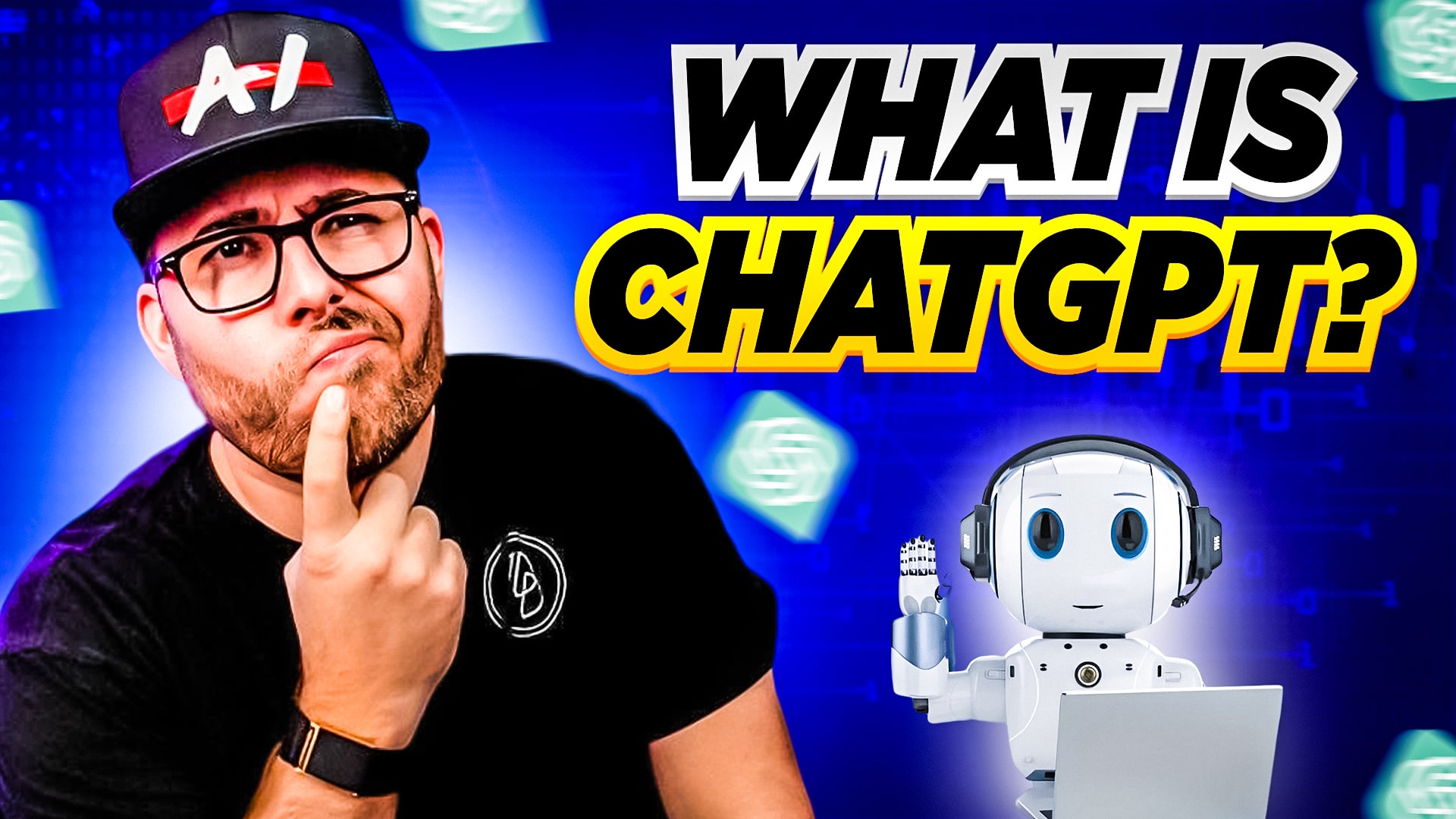
Can ChatGPT write essays? Is it a means for good or evil? What is ChatGPT? Find out the answers to all your questions about the latest viral sensation in the tech scene in this article.
What is ChatGPT?
Unless you live under a rock, you’ve probably heard of the current talk of the town: ChatGPT.
This Artificial Intelligence (AI)-driven language model launched on Nov. 30, 2022, is considered one of the most advanced and capable tech tools in the AI industry and comes in the form of a chatbot.
Trained on text data from the internet, it generates human-like responses to natural language text inputs and can perform different language tasks like question answering, text completion, text summarization, and text generation, among others.
Since ChatGPT is relatively new and still in its research phase, it is available for free. That also means that there’s no ChatGPT character limit when you insert a question.
Who Made ChatGPT?
ChatGPT was founded by OpenAI, a research organization centered around developing AI for the benefit of humanity. OpenAI also created the popular AI art generator DALLE•2 and the automatic speech recognition system, Whisper.
In 2015, the organization was founded by Elon Musk, Sam Altman, John Schulman, Ilya Sutskever, Greg Brockman, and Wojciech Zaremba. Elon Musk has since left the company.
According to OpenAI’s CEO Sam Altman, ChatGPT registered more than 1 million users within 5 days after launching. While he said that the response to one query cost “single-digits cents”, he noted that ChatGPT would eventually have to be monetized due to its fast growth and high compute costs.
How Can You Access ChatGPT?
Using ChatGPT is easy: simply visit chat.openai.com, create an OpenAI account, and start inserting queries. You can type as many questions as you like or ask the bot to create written content.
Due to the tool’s popularity, countless people are using it, which may cause the server to overload, return with a ChatGPT network error and stop working. That means you may not always get an answer to your queries. Because ChatGPT is still in its research phase and free to the public, more and more people are trying the bot out every day.
If you have been using ChatGPT, find it useful, and want uninterrupted service at all times, you can opt to sign up for the paid version, ChatGPT Plus. This pro plan is available for $20/month and provides you with faster response times and priority access to new features.
How Are People Using ChatGPT?
From answering simple questions to creating AI art prompts, and writing code, ChatGPT can be used for a variety of applications. The most popular ones are:
- Chatbots and Conversations – ChatGPT is capable of building intelligent chatbots that have human-like conversations with users.
- Generating Text – From creative writing to product descriptions and news articles, the tool can generate long-form human-like text in just a few seconds.
- Answering Questions – Most people use ChatGPT to ask questions on any topic of interest.
- Text Completion – The AI tool can also complete a fragment of text based on the context.
- Text Summarization – If you have a large body of text and would like a quick summary, ChatGPT can provide you with one in an instant.
- Sentiment Analysis – ChatGPT is able to analyze any given text and judge it as positive, negative, or neutral.
While these are the most common applications of ChatGPT, the team behind the language model is currently exploring new ways to expand its capabilities.
What Is the Difference Between ChatGPT and a Search Engine?
When ChatGPT first came out, some people thought it was just an advanced version of Google and other search engines.
However, there are stark differences: while search engines index websites to come up with the information a user asks for, ChatGPT doesn’t have the ability to search the internet, and, instead, holds conversations with end users. It uses the information it learned from training data to generate a response, which allows for mistakes to occur.
What Are ChatGPT’s Limitations?
Although ChatGPT is currently the most advanced AI language model of its kind, it remains limited in its abilities. Here’s an overview of the tool’s limitations:
Incorrect/Wordy Responses
ChatGPT can only answer questions that are worded in a way it understands. Its responses sometimes lack quality, meaning, they may seem plausible but are either incorrect or too wordy.
According to some critics, AI tools like ChatGPT have the ability to word responses in a way that makes sense, even though they don’t understand their own responses or whether their answers are correct.
Inability to Clarify the Meaning of Questions
When ChatGPT doesn’t understand a question, it doesn’t ask for clarification and simply guesses its meaning to provide an answer. Naturally, this may result in incorrect responses.
Because of this, the question-and-answer site StackOverflow temporarily banned responses generated by the language model. Stack Overflow moderators believe the main issue with the AI tool is that it seems to produce answers that look good but are often incorrect.
Data Is Limited to 2021
ChatGPT’s knowledge is limited to 2021 data, meaning it can’t produce responses to questions about current events. In fact, if you ask it to tell you who won the World Cup in 2022, it will respond in mere seconds with “The winner of the 2022 FIFA World Cup was France,” which is untrue. The winner of the 2022 World Cup was Argentina.
ChatGPT FAQs
Why Are Some People Worried About ChatGPT?
Many people are concerned about AI chatbots and believe they could replace human intelligence. Since ChatGPT can write articles and other bodies of text on any topic in just a few seconds, copywriters and journalists are worried about the future of their jobs.
In addition, students can easily cheat and use the tool to write essays for school. As a result, some school districts have blocked access to it.
Because of its inability to discern right from wrong answers, ChatGPT can also easily spread misinformation. It isn’t connected to the internet and cannot search the web, therefore it cannot check whether its responses are correct.
In fact, if you ask the bot if its responses are correct, it says this: “As an AI language model, I strive to provide accurate and helpful responses based on the information I was trained on. However, I am not perfect and can make mistakes or provide incorrect information at times. It’s always a good idea to verify the information you receive from any source, including me.”
Are There High-Qulity Alternatives to ChatGPT?
Although ChatGPT is currently the most popular chatbot on the market, there are several other alternatives worth considering if you’re looking to use an AI language model. While ChatGPT has a lot of capabilities, its free version is often overwhelmed with users and can become unavailable.
Other AI chatbots you can explore include YouChat, Jasper, and Chatsonic. They each offer similar services and have fewer users, so they’re usually accessible at any time.
Does a Tool That Recognizes ChatGPT Text Exist?
Since schools are concerned about students using ChatGPT to cheat, OpenAI created a free tool that can help detect content gendered by AI.
This “classifier” tool isn’t perfect as it can only identify about 26% of ChatGPT-generated text, designating it as “likely AI-written.” About 9% of the time, it provides false positives and identifies text written by humans as written by AI.
A few other AI detectors emerged, such as Content at Scale AI Content Detection, Writer AI Content Detector, and GPT-2 Output Detector. However, these tools are also unreliable for identifying AI-written text and often provide false negatives.
Does ChatGPT Save Data?
Whenever you use ChatGPT, you’ll notice that your conversations are automatically stored and can easily be accessed again on the left-hand bar.
This means that OpenAI staff can also review your data and use it to improve their language model. It’s best to assume that all your questions and answers on the bot can be read by OpenAI.
Some people have raised privacy and security concerns about their data. While you cannot delete specific prompts from your history, you can ask to have your account deleted, and, with it, your data.
As long as you use ChatGPT, it’s recommended that you don’t share any sensitive information in your conversations.
Final Thoughts
Now that you know the answer to “What is ChatGPT?” it’s up to you to decide whether it’s a useful tool for you. Whether the ChatGPT chatbot is a good or bad thing, in general, remains to be seen.
Although many people rave about the potential of the AI-driven tool, others are concerned that it may lead to more cheating in school and increased layoffs after the bot replaces jobs. There’s also a concern about privacy and security. Ultimately, the impact of ChatGPT will depend on how it is further developed, used, and regulated.
